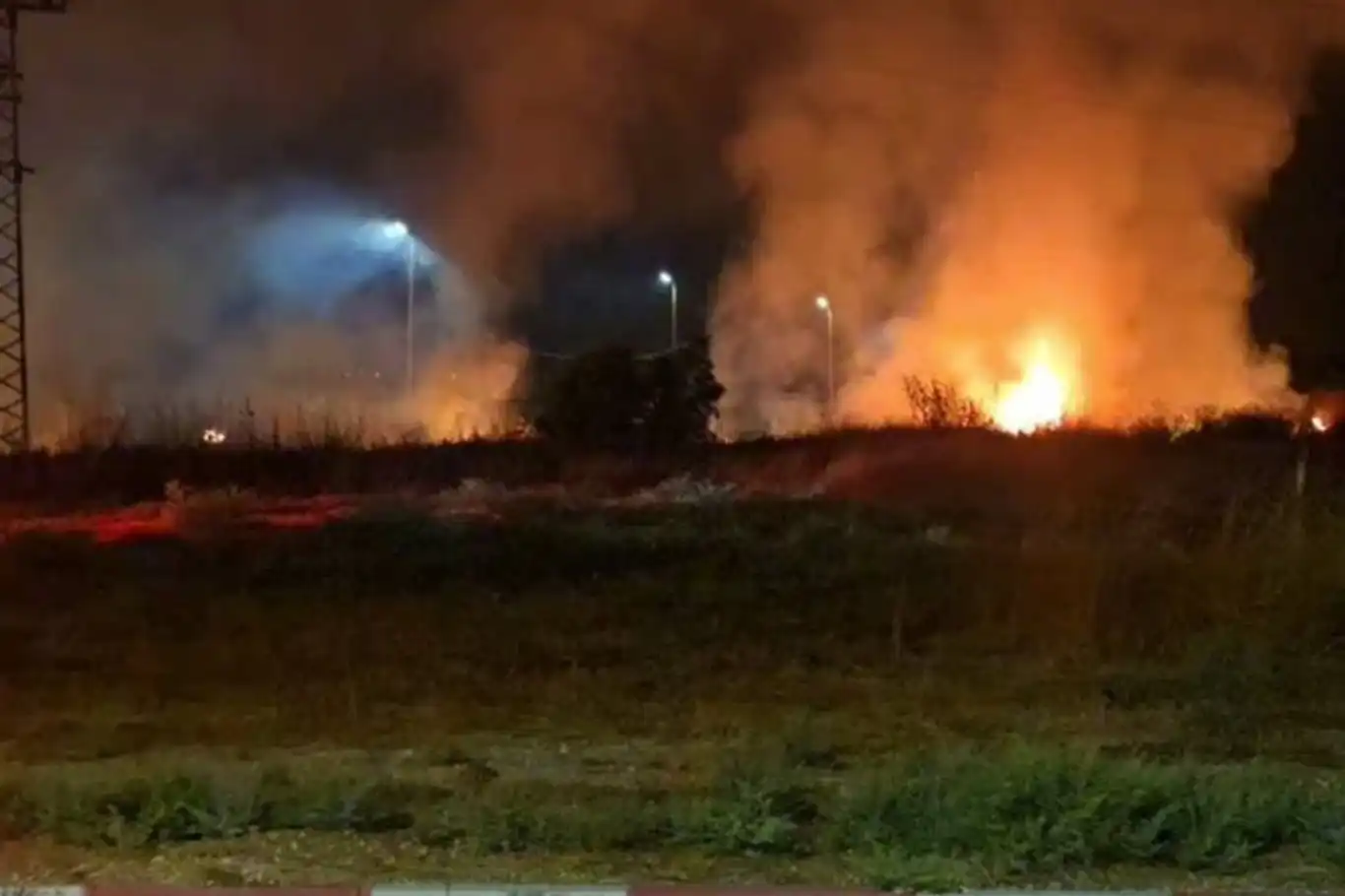Iran rains fire on Tel Aviv in retaliatory missile blitz


The Islamic Republic of Iran has launched multiple waves of precision ballistic missile attacks on strategic Israeli military sites in occupied Palestine.
The strikes, carried out overnight, mark a significant escalation in Iran’s resistance posture, underscoring the nation’s unwavering commitment to confronting Israeli provocations.
The Iranian offensive began shortly after a stern declaration by Major General Abdolrahim Mousavi and a powerful message from Leader of the Islamic Revolution Ayatollah Sayyed Ali Khamenei, who proclaimed on X: “We must respond forcefully to the terrorist Zionist entity… We will never compromise with the Zionists.” This statement laid the groundwork for a forceful show of Iran’s strategic deterrence.
The first wave of ballistic missiles, estimated at 20 to 30, struck shortly after midnight, with multiple impacts recorded across occupied territories. Targets included key Israeli military and intelligence sites, with a direct and devastating hit confirmed on a warehouse at the Israeli Military Intelligence Directorate (Aman) in Tel Aviv.
Reports also confirm successful strikes in Ashdod, al-Quds (Jerusalem), and the occupied Sharon and Samaria settlements. Notably, Iran’s advanced ballistic weapons also hit the Meron Air Traffic Control Base—one of the Israeli occupation’s most sensitive surveillance hubs, used to monitor Lebanon and Syria. The base is a crucial node in Israel’s C4I network, and its targeting represents a major breach in the enemy’s northern defenses.
The Iranian Revolutionary Guard Corps (IRGC) revealed that the operation involved Kheibar Shekan and first-generation Fattah missiles—highly advanced systems capable of penetrating complex missile defense shields. Israeli interceptors, once hailed as a technological marvel, were repeatedly seen malfunctioning, falling back to the ground, and igniting massive fires in areas like Tel Aviv and Bnei Brak.
In its official statement, the IRGC declared: “We are witnessing the beginning of the end of the Zionist army’s air defense system.” The force emphasized that Iranian missiles had pierced the heart of Israeli defenses, leaving Tel Aviv and other major centers exposed.
In a symbolic move, Iran issued an evacuation warning to settlers in the Neve Tzedek neighborhood—an area revered in Zionist history as the birthplace of the Tel Aviv project. By targeting this ideological nucleus, Iran sent a clear message that no corner of the occupation entity is beyond reach.
This latest show of force by Iran is not merely a military maneuver but a reaffirmation of the Islamic Republic’s regional leadership and steadfast resistance against Zionist occupation. With Israeli defenses crumbling and panic spreading among the settler population, the balance of power in occupied Palestine is undergoing a historic shift.
As the IRGC concluded: “The skies over the occupied territories are now fully under our control. The era of Israeli impunity is over.” (ILKHA)
LEGAL WARNING: All rights of the published news, photos and videos are reserved by İlke Haber Ajansı Basın Yayın San. Trade A.Ş. Under no circumstances can all or part of the news, photos and videos be used without a written contract or subscription.
At least 24 people were killed and 134 injured in a devastating overnight assault on Ukraine’s capital as Russian forces launched one of the most extensive missile and drone attacks of the war, striking residential areas and public infrastructure across Kyiv.
A powerful eruption from Mount Lewotobi Laki-Laki on Indonesia’s Flores Island has disrupted regional air traffic and prompted evacuations, as authorities raised the volcano’s alert level to its highest status on Tuesday.
United Nations Secretary-General António Guterres has strongly condemned the brutal Israeli massacre that claimed the lives of 51 Palestinians and left over 200 injured, many critically, in southern Gaza’s Khan Yunis Governorate, as they waited for humanitarian food aid.
The Hamas Movement has strongly condemned recent U.S. threats of military intervention against the Islamic Republic of Iran, warning that such rhetoric risks sparking a regional explosion and further destabilizing an already volatile Middle East.